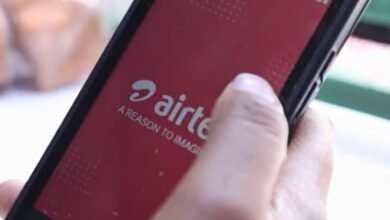
Kenya’s puzzling and unacknowledged Telegram shutdown during national exams last year has resurfaced in the headlines, and this time it comes with a hefty price tag. A recent report from Top10VPN.com has revealed that Kenya potentially lost a staggering $27 million during the estimated 192 hours of the Telegram shutdown. The government’s silence on the matter continues to raise eyebrows, leaving many questions unanswered.
According to the Top10VPN.com report, Kenya’s Telegram shutdown is just one piece of a much larger puzzle. The report, which analyzed major intentional internet shutdowns in 2023 worldwide, revealed that these shutdowns cost the global economy a staggering $9.01 billion. It sheds light on the significant economic consequences of government-imposed internet restrictions.
The situation last year was weird because both Kenyan citizens and the international community were asking questions about what was going on. Yet through it all there has been no official acknowledgment of the internet restrictions. Who authorised it? Was it a court order, an individual? Were the different telecommunication companies involved? How can something be raised by AccessNow, Netblocks and many other independent monitoring groups, yet months in there has been no mention of it from relevant circles. Which begs the question, how does a government block access to an app?
Top10VPN.com’s report has provided insights into the various methods governments employ to shut down or block internet access. These methods include:
- Network Shutdown: In the most drastic scenario, governments can force Internet Service Providers (ISPs) and mobile carriers to power down critical circuits, essentially disconnecting the country’s telecommunications network. Some governments even possess an “internet kill-switch,” a single shut-off mechanism that the UN has condemned.
- Border Gateway Protocol (BGP) Manipulation: By manipulating BGP routing tables, an ISP can make certain IP addresses “disappear” from the internet, effectively cutting off access for specific users while allowing exceptions, such as government officials.
- IP Address Blocking: ISPs can create lists of IP addresses associated with services they want to block, blocking all internet traffic to or from those addresses. This method can sometimes result in unintentional collateral damage, blocking more than intended.
- Domain Name System (DNS) Filtering: DNS filtering targets domain names rather than IP addresses. ISPs can program DNS resolvers to return incorrect information for specific DNS lookups, effectively blocking access to certain websites or apps.
- Deep Packet Inspection (DPI): DPI examines the full contents of data packets in internet traffic, enabling the blocking of specific content or applications. DPI is also effective at throttling speeds for specific types of traffic, such as video or VoIP.
- Protocol Blocking: Governments can target specific protocols, such as TCP/IP port numbers, to block or throttle certain apps associated with known ports. This method can be used to prevent citizens from using instant messaging services or email, among others.
The report from Top10VPN.com underscores the importance of safeguarding internet freedom and the potentially devastating economic consequences of government-imposed internet shutdowns. While Kenya’s $27 million loss is a significant blow, the global impact of such actions highlights the need for greater transparency and accountability in the digital age. As governments continue to employ various methods to restrict access to the internet, the debate over the balance between security and freedom rages on.
This year, there will be elections across 90 countries, and a Surfshark analysis raises concerns about internet freedom in these nations. The report highlights that one in eight countries, especially in Sub-Saharan Africa and Southern Asia, are at risk of internet restrictions, which historically include network shutdowns and social media blackouts. These measures, as seen since 2015, not only silence online discussions but also compromise the integrity of the electoral processes. Countries like India, Iran, and Belarus, with histories of internet clampdowns, face heightened risks of similar tactics in their upcoming 2024 elections. Surfshark’s findings indicate a troubling correlation between digital censorship and broader violations of freedom, underscoring the impact of these restrictions on global democracy.





